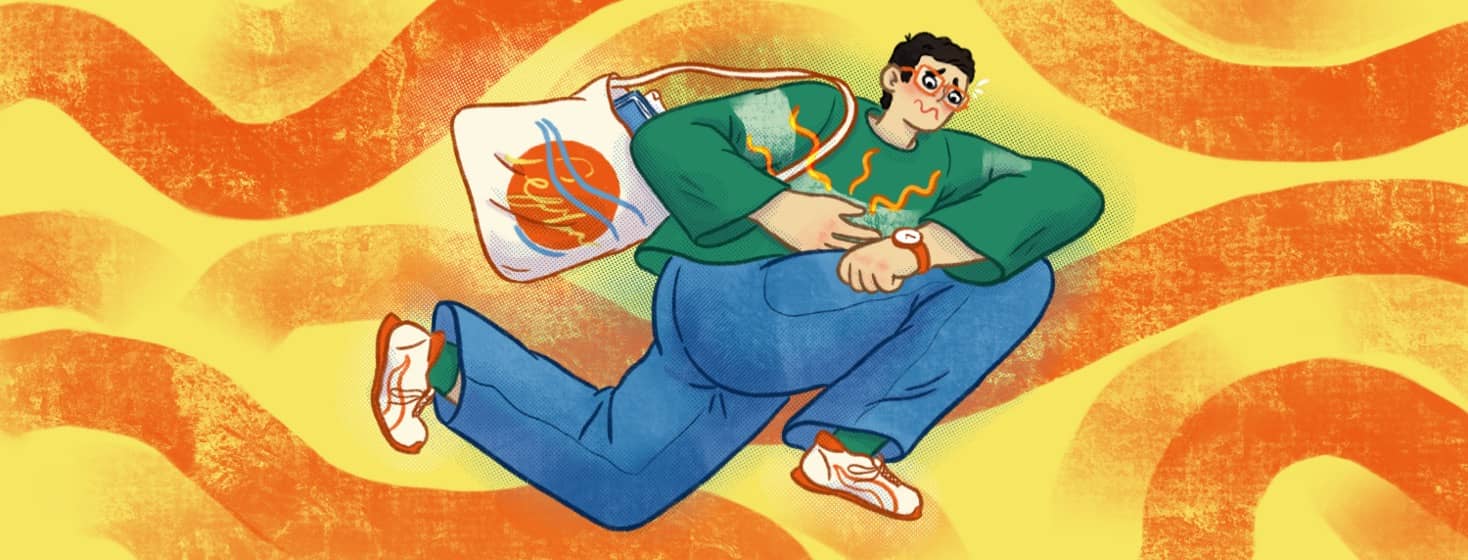I’m in Remission, So Why Do I Still Get Stomach Aches?
One would think that as a Crohn's or colitis patient, you fall into 1 of 2 categories: "active disease" or "in remission." The truth is, there is a gray area between the 2 where a patient can actually be in remission but feel like they have active disease.
Crohn's stomach aches (even in remission)
I am one of those people who is proud to say that I am in remission, but there are certain days when my stomach just does not want to cooperate, whether it be urgency while pushing my daughter on the swing at the park or experiencing severe cramps as I am about to dial into a Zoom call. Being "in remission" doesn't mean that all of the pain and suffering from Crohn's goes away – but why not?
I decided to play detective with my own symptoms, trying to figure out if there was a correlation between what I was eating, how I was eating, and if any symptoms occurred afterward. While nothing, in particular, stood out, I was determined to figure out if my diet was contributing to my symptoms. I had already been gluten-free for the last 9 years, but what if there was something else that could irritate my stomach that hadn't previously?
It wasn't until I was on vacation that I realized there actually was something that changed in my diet, which was most likely the culprit of my newly developed stomach issues.
Is food triggering my stomach problems?
When I was pregnant the previous year, I started using peanut butter instead of almond butter on my rice cakes. My preferred peanut butter was all natural with oil that settles on the top, and I realized that whenever I eat something that is greasy or oil-based, my stomach gets upset. So, upon returning from vacation, I ate the last bit of natural peanut butter that was in the jar and returned to only consuming almond butter.
My daily urgency and loose bowel movements soon resolved, and I was back to feeling like my old self –about 90% of the time. There were still days that I found myself swiftly walking back from taking my son for a walk around the block or running into a store while on errands to urgently use their bathroom, and I felt defeated, fearing my disease had gotten worse.
Getting a colonoscopy to check on inflammation
Luckily, I had a colonoscopy scheduled to check the status of my disease, but it was the first time that I truly feared what would be found. If everything was fine, why was I still having bouts of diarrhea and cramping?
To my surprise, upon my groggy wake from the propofol-induced slumber, my GI proudly announced that I had zero inflammation, and no ulcers were found during my colonoscopy. I was in complete disbelief. "So, I am in remission??" was all I could muster, to which she replied, "Yes." So, what does this mean? Why do I still have stomachaches and urgency if I am in remission?
Crohn's and colitis can be a real pain in the stomach
The truth is, sometimes our digestive systems aren't always on their best behavior. There may be a correlation to what we eat, stress, or our environment, but other times, there is no reason other than we are just having a bad day with our Crohn's.
Remission does not mean "symptom-free," and that is important to understand both as a patient and as a loved one of a patient. We try our best, eat what we should, avoid foods that don't agree with us, and if the cards just aren't in our favor one day, we have urgency. But that is just another day in the life of one living with Crohn's.

Join the conversation